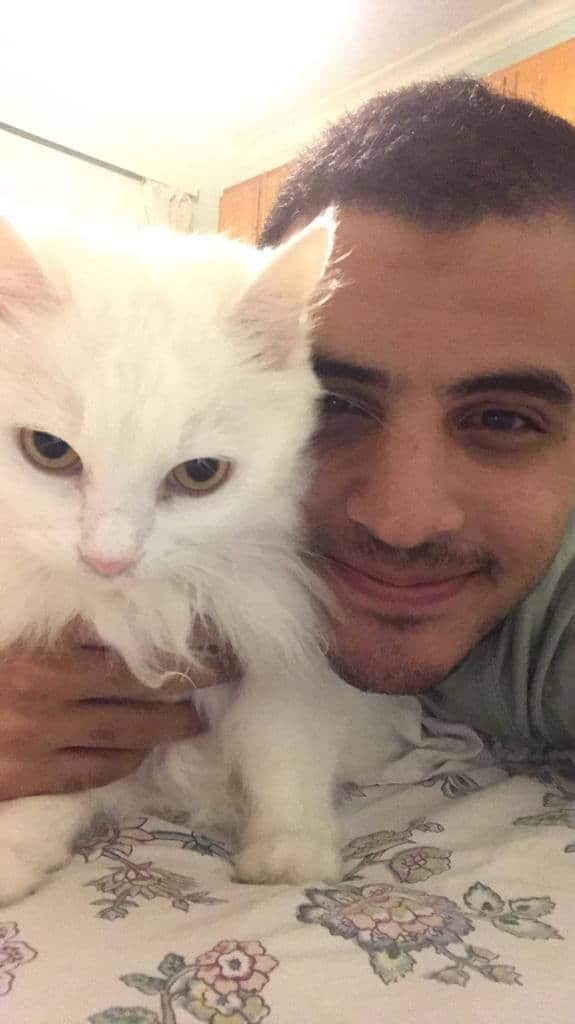Metronidazole is one of the most commonly prescribed antibiotics for cats. It’s used to treat a variety of conditions. Your vet may prescribe metronidazole for protozoal infections, diarrhea, inflammatory bowel syndrome, or other gastrointestinal problems.
Unfortunately, metronidazole is very bitter, and your cat may refuse to take it. If administered forcefully, it may cause your cat to gag or vomit. Not to mention that some cats are allergic to metronidazole.
In this post, we’ll go over five alternatives to metronidazole for cats that you can discuss with your vet. We’ll talk about their effectiveness and outline their uses and side effects.
Let’s get started!
Table of Contents
The 5 Alternatives to Metronidazole for Cats
- Tylosin for diarrhea and protozoan diseases
- Rifaximin for ulcerative colitis and Crohn’s disease
- Probiotics for diarrhea and inflammatory bowel disease
- Clindamycin hydrochloride for a variety of infections and protozoan diseases
- A custom diet for diseases that can resolve spontaneously
1. Tylosin
Tylosin is commonly regarded as the direct alternative to metronidazole. It comes from the same class as erythromycin; a class known as ‘macrolide antibiotics.’
Your vet may prescribe tylosin mainly for diarrhea and GIT inflammation, but it’s also prescribed off-label for intestinal inflammations and certain protozoan infections.
Tylosin is usually given orally. It’s sold as a soluble powder or in liquid form. You can give it to your cat with or without a meal.
Consult your veterinarian about the use of tylosin if your cat shows negative side effects from metronidazole, like nausea or drooling. Tylosin has side effects as well, but they’re described as less severe and less frequent, like mild GIT discomfort and loss of appetite.
Tylosin vs Metronidazole
Tylosin’s side effects are only a few compared to metronidazole, mainly because of its half-life. Tylosin is a short-acting drug that shouldn’t last longer than 24 hours if your cat has a healthy liver and kidney.
The only downside of tylosin is that it’s just as bitter as metronidazole. You can ask your vet for an injection at the clinic, or give it to your cat with a treat.
Related: The top Clavamox alternatives for cats
2. Rifaximin
Rifaximin may be a great alternative to metronidazole for inflammatory bowel disease (IBD), chronic diarrhea, and certain neurologic signs from liver disease. It’s available in pill or liquid form, and it has minimal side effects.
The most common side effect is limb swelling. While it may seem alarming, it’s not that serious. Rifaximin sometimes causes water retention, which can be counteracted with a low-salt diet and vitamin B6 supplements. Other side effects are low energy levels and nausea.
Of course, you should stop the drug immediately if there’s a persistent swelling of the limbs, a swelling of the tongue and lips, a rash, or noticeable skin changes.
3. Probiotics
Probiotics are just as important to cats as they are to humans. They’re basically friendly bacteria that help regulate digestion and are believed to prevent and relieve a variety of gastrointestinal diseases.
Probiotics can be an everyday supplement for healthy cats, but they’re commonly prescribed to treat IBD and diarrhea. Your vet may prescribe it with an antibiotic, or after the antibiotic course to help recover gut health.
You’ll find probiotics in all forms – pills, liquids, powders, you name it. There are even duck-flavored, bite-sized probiotics available!
Probiotics are generally popular because they’re safe. Adverse effects occur, but they’re very rare. This is because the microbes found in probiotics are already in your cat’s gut.
The most common side effects are mild stomach disturbances, flatulence, bloating, or rarely, diarrhea. Luckily, they don’t last very long if they emerge.
Your vet can help you choose a reputable probiotics brand, since most issues arise from poor manufacturing regulations. The National Animal Supplement Council recognizes some trusted brands, so always look for that NASC label.
Related: The 7 Most Common Apoquel Alternatives for Cats
4. Clindamycin Hydrochloride
Clindamycin is a less commonly prescribed alternative to metronidazole. It’s approved by the FDA for the treatment of wound infections, abscesses, and osteomyelitis.
Clindamycin may also be an excellent choice for methicillin-resistant staphylococcus bacteria, actinomycosis, respiratory infections, intra-abdominal sepsis, and protozoal infections.
Additionally, your vet may consider switching to clindamycin if they suspect toxoplasmosis, which metronidazole is ineffective in treating.
Clindamycin is found in liquid form and as capsules. It’s a bitter drug, so it’s best to mix the medication with a meal.
Side effects include some stomach upsets, nausea, vomiting, diarrhea. You should give clindamycin with food and never give it as a dry pill to avoid injury to the esophagus.
A lodged pill will cause a lot of discomfort, and could potentially be dangerous. Discontinue the drug immediately and inform your doctor in case of bloody diarrhea.
Related: Top Plavix Alternatives for Your Cat
5. Custom Diet
It’s no surprise that a proper diet can aid in your cat’s treatment. In fact, less severe diseases can be resolved spontaneously without medication.
A custom diet may work very well with cats suffering from IBD, diarrhea, and, in some cases, protozoan infections.
Your vet may be open to discussing a no-medication treatment plan if your cat shows mild symptoms and appears to be recovering quickly.
For chronic diarrhea, it’s important to make sure your cat is hydrated at all times. Probiotics are a great addition to boost your cat’s gut functions.
Foods with soluble fibers are able to slow things down in the intestine, absorb excess fluids, and harden your cat’s stool. Your vet may recommend homemade boiled chicken with no skin and boiled pasta or rice.
For IBD, your vet might not focus on what your cat should eat, and instead, list a bunch of foods that shouldn’t be eaten. Allergens in food are common triggers of IBD, so an appropriate diet should consist of hypoallergenic foods only.
Note that the proteins in chicken, fish, and beef can actually trigger IBD. Rabbits and ducks are excellent alternatives. Also, foods that are low in fat and rich in fibers can help your cat improve quickly.
Is Metronidazole efficient for cats with diarrhea?
Actually, one of the possible side effects of Metronidazole is diarrhea, although many veterinarians prescribe to treat diarrhea. However, I suggest asking your vet if you can use one of the above-mentioned alternatives as a better diarrhea treatment for your furry friend.
Is it safe to use metronidazole for kittens?
In general, it is not recommended to give your kitten Metronidazole. Unlike Clindamycin, Metronidazole is not FDA-approved for animal use. You definitely shouldn’t use Metronidazole for your pregnant or your mother cat.
Closing Thoughts
There you have it; the 5 best alternatives to metronidazole for cats. Please keep in mind that it’s critical to follow your vet’s instructions carefully and that you should not consider the information shared in this article as a substitute for your vet’s diagnosis and opinion.
Be sure to tell your vet about any supplements your cat is taking and any adverse effects you’re concerned about.

I’ve been living with cats since 2008 and I can confidently say I have more feline friends than humans lol. I currently live with 5 cats in different life stages; two of them are less than one year old, one is 2-ish years old and the oldest two are 9-ish years old. I’ve developed a strong bond with cats over the years and I’m eager to share my experience through this blog. You can learn more about my cats here.



